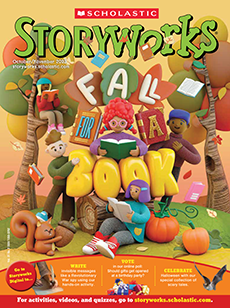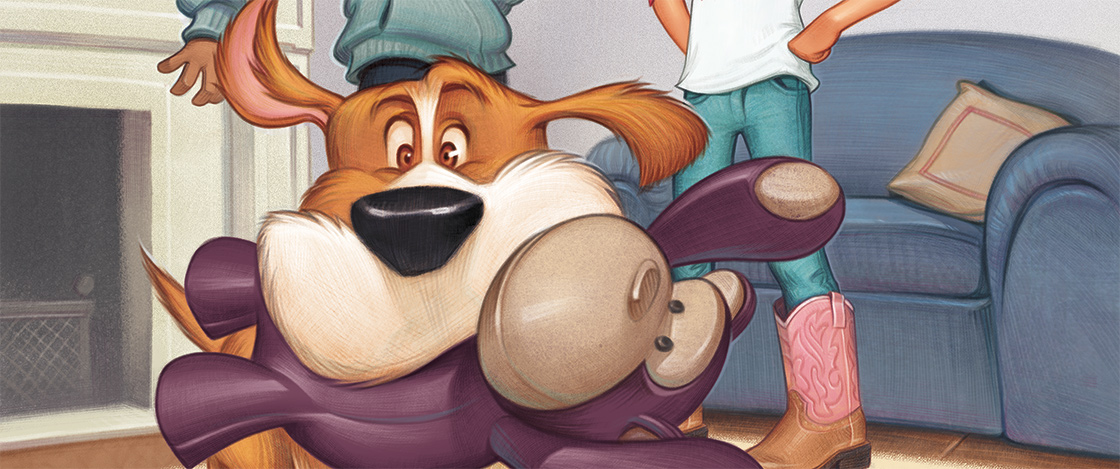The night I discovered Sherlock could talk was just a regular night.
Mom was rushing around the kitchen, trying to figure out what to do with the pork chops Dad had forgotten to take out of the freezer.
“Brian,” Mom cried. “Would you please call your dog? He’s driving me crazy with his squeaky toy!”
Sherlock stood in front of her, squeaking his stuffed monkey over and over.
“Come here, Sherlock,” I said. Sherlock bounded over, wagging his tail. He looked up at me with those big brown eyes. Most of the time his eyes were happy. This time his eyes said, “Listen up!”
“What is it, Sherlock?” I asked.
Squeak, squeak—squeeeeeeeak!
“Are you trying to tell me something?”
Squeak! Squeak!
“Hey, Dad,” I said. “I think Sherlock is trying to talk to us through Mr. Squeaks.” Sherlock squeaked the monkey twice.
“He’s trying to tell you he wants his dinner,” Mom called from the kitchen.
Sherlock yipped at the sound of his favorite word: dinner.
“Is that what you want, Sherlock?” I asked. “Squeak twice for yes if you want dinner.”
Sherlock picked up the slobbery monkey and squeaked it twice.
“Mom! Did you see that?”
Dad watched Mom poke at the frozen pork chops.
“Brian, just feed that poor dog. And honey, call Speedy’s Pizza,” Mom said as she slumped down on the couch.
I filled Sherlock’s dish with food.
“You want your dinner, boy?” I asked. Squeak! Squeak!
I decided to try something else. “Do you want to go to the vet, Sherlock? Squeak twice for yes and once for no.”
Sherlock bit down once on Mr. Squeaks. Hard.
“Whoa! Mom! Dad! Did you see that?”
They were too busy arguing over pizza toppings to notice.


